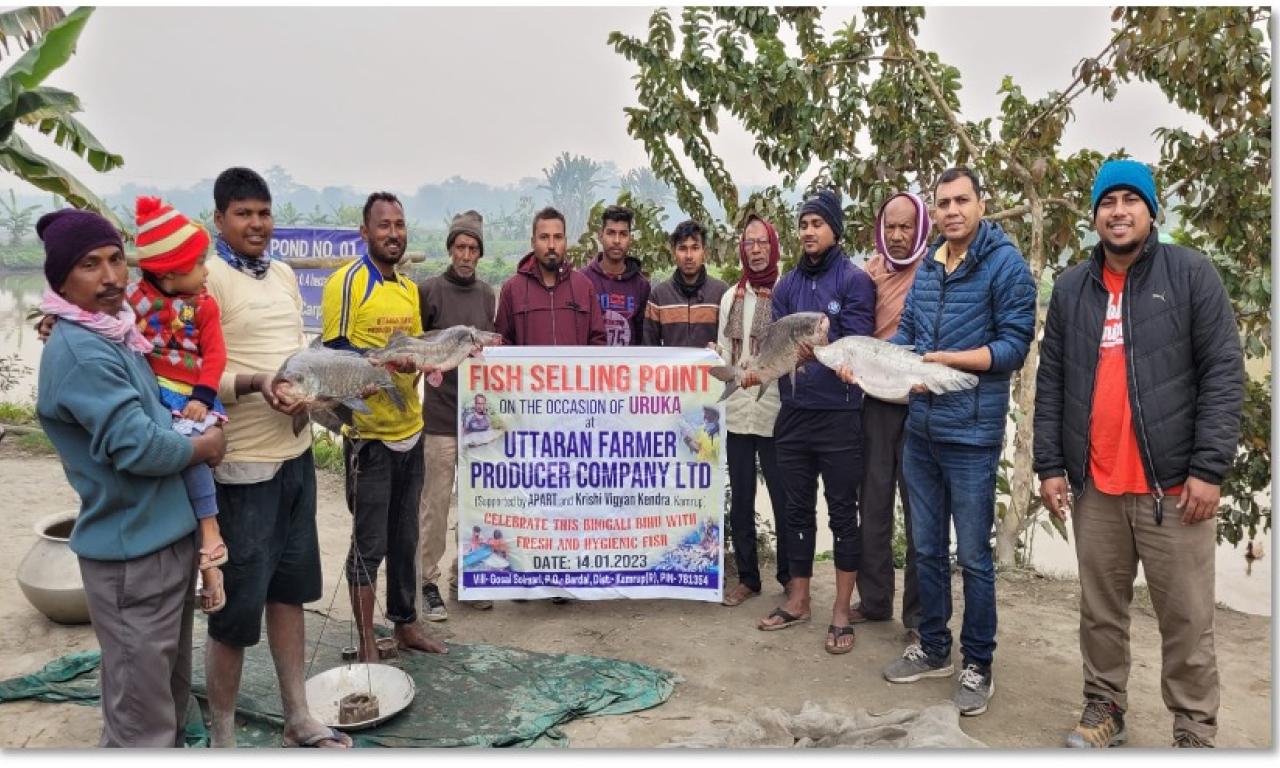
- FFPCs in Assam are promising business enterprises addressing agriculture and fisheries challenges to unite farmers for better access to investments, technology, and markets.
- In Assam, FFPCs operate as hybrid models under the Indian Companies Act, with democratic structures, and face procurement issues, lack of services, branding struggles, and limited access to finance and infrastructure.
- Improved management, streamline processes, invest in infrastructure, and strengthen relationships with financial institutions are key for faster growth.
In recent years, a transformative movement has been sweeping through the agricultural landscape of Assam, bringing hope and prosperity to small and marginal farmers. Farmer Producer Companies have emerged as beacons of promise, revolutionizing the way farmers collaborate and thrive in the state's challenging agricultural sector. FPCs, also known as Farmer Producer Organizations, are reshaping the agricultural narrative by bringing together producers into cohesive entities. By uniting farmers, especially the small-scale ones, into Producer Organizations, FPCs are tackling the multifaceted challenges of fisheries and agriculture head-on. Their mission? To bridge the gap between farmers and essential resources such as investments, technology, inputs, and markets.
In parallel, Fish Farmer Producer Companies are making waves in the fisheries sector. These organizations represent a collective effort among fish farmers to engage in fish farming and marketing and ultimately reap economic benefits. Whether formed by a group of primary producers or through institutions, FFPCs operate as a hybrid model, blending the best of cooperative societies and private limited companies. One of the fundamental principles of FFPCs is their democratic governance structure. Each member, regardless of their shareholding, holds equal voting rights—a testament to the inclusive nature of these organizations. Managed by a Board of Directors and promoters, FFPCs are steering towards sustainable growth and equitable representation within the fisheries sector. In Assam about 532 FPCs have been formed to date under various departments and schemes out of which 30 are fisheries FPCs but only 20 of them are currently functioning, most of them are still in the nascent stages of development.

Challenges and Opportunities
Despite their promising outlook, FFPCs in Assam face a myriad of challenges. From poor procurement of farmers' produce to a shortage of custom hiring services, these organizations are grappling with issues that hinder their growth potential. Additionally, establishing brand value, accessing bank loans, and developing infrastructure remain significant hurdles for FFPCs in the region. FFPCs in the region.
However, amidst these challenges lie opportunities for growth and innovation. By focusing on effective management and leadership development, providing technical guidance to members, and streamlining procurement processes, FFPCs can enhance their operational efficiency. Moreover, building strong brand identities, forging partnerships with financial institutions, and investing in market intelligence can catapult FFPCs toward success.

The Path Forward
To unlock the full potential of FFPCs in Assam, concerted efforts are needed. By implementing strategic recommendations such as developing management skills, fostering collaboration, and investing in infrastructure, FFPCs can overcome their challenges and thrive in the competitive market landscape. Continuous monitoring, evaluation, and learning from best practices will be crucial in ensuring the sustained growth and success of FFPCs in the region. As Assam marches towards agricultural prosperity, FFPCs stand as catalysts for change.
By empowering farmers, fostering collaboration, and embracing innovation, these organizations are reshaping the agricultural landscape of the state. With determination, resilience, and strategic planning, FFPCs in Assam are poised to unlock a future of sustainable growth and prosperity for all stakeholders involved.

